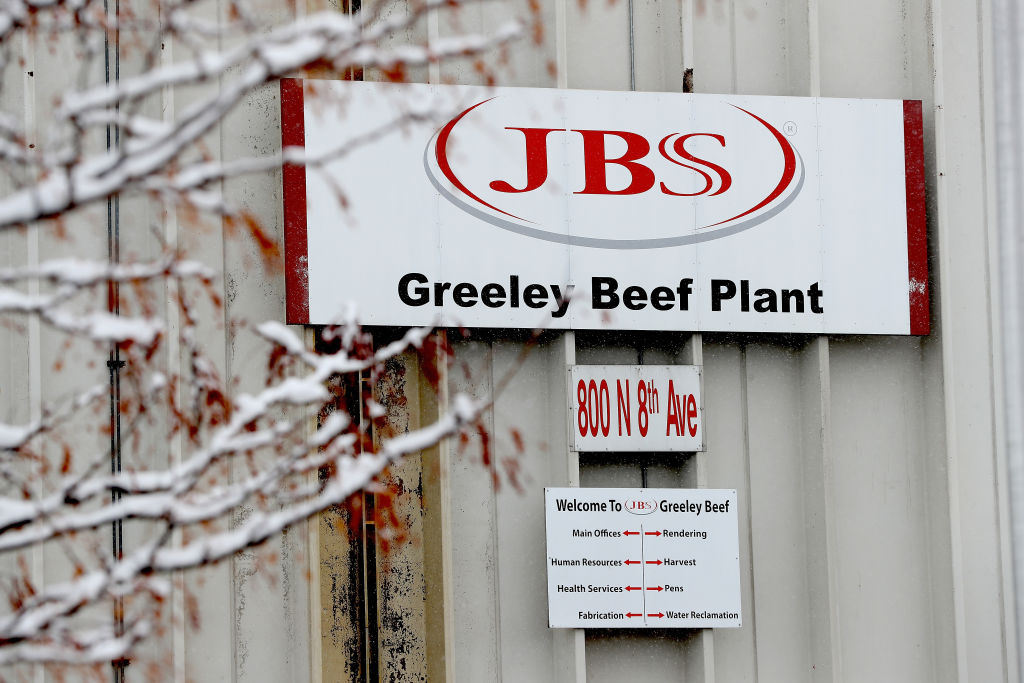
More than 100 children—some as young as 13—were employed in hazardous jobs cleaning equipment like skull splitters, brisket saws, and bone cutters in meatpacking plants in eight states over the course of three years, the U.S. Department of Labor (DOL) says.
The children were employed by Packers Sanitation Services Inc., a Wisconsin-based staffing agency that fills open jobs in the food-services and agricultural industries on a contract basis. PSSI is owned by the Blackstone Group, and paid $1.5 million in penalties for the violations, DOL said, at a news conference Feb. 17. (DOL has also cited PSSI for numerous other violations, including accidents that led to amputations, in recent years.)
Last November, DOL first accused PSSI of employing 30 minors, and a court granted the government a temporary restraining order to stop what a judge called “oppressive child labor.” The company said, at the time, that “rogue individuals” had engaged in fraud or identity theft and that it did not employ anyone under the age of 18.
The DOL’s investigation turned up even more children employed by PSSI in states including Arkansas, Colorado, Minnesota, and Nebraska, said Jessica Looman, principal deputy administrator of DOL’s Wage and Hour Division, at the news conference.
“Make no mistake, this was no clerical error or actions of rogue individuals or bad managers,” she said. “These findings represent a systemic failure across PSSI’s entire organization to ensure that children were not working in violation of the law.”
The children worked at factories owned by companies including JBS Foods, Tyson Food Inc., and Cargill Inc., the DOL says.
The Department of Labor has seen a 50% increase in child labor violations since 2018, Loomans says, but it’s unclear if that rise is because more companies are employing children or because there have been more investigations of these companies. DOL data shows that it found 3,876 minors employed in violation of the law in 2022, a 68% increase from 2018. But that number still pales in comparison to 2002, when it found 9,690 children employed illegally.
That said, DOL has been uncovering more and more violations in the past five years. For example, the agency has found that more children are working longer hours than they are permitted by law, Looman says, and that there are more minors working in dangerous occupations that are supposed to be off limits for children. In 2022, there were 688 minors employed in violation of the Labor Department’s Hazardous Occupations Orders, which prevent 16- and 17-year-olds from working in jobs like coal mining, slaughtering meat, and roofing, according to DOL data. That’s the most since 2011.
Kate Bronfenbrenner, a professor at Cornell’s School of Industrial and Labor Relations, believes that the increase in child labor is related to the impunity with which big corporations operate in today’s economy. As companies consolidate and grow, she says, they are worth so much money that some find it easier to violate laws and pay minimal fines than to comply with laws. “They just figure it’s the cost of doing business,” she says. PSSI, for example, paid investors a $297 million dividend in 2020, which dwarfs the amount of its $1.5 million fine.
Read more: Companies Will Do Almost Anything to Stop Workers from Organizing
Another factor is the tight labor market in the U.S., which has motivated lawmakers in some states to relax child labor laws. A bill recently introduced in the Ohio Senate, for instance, would allow teenagers to work longer hours with their parent’s permission. State Sen. Tim Schaffer told News 5 Cleveland that the goal of the bill is to address staffing shortages in the restaurant industry. But allowing kids to work longer hours also raises safety concerns—even if they don’t end up on the slaughterhouse floor, labor experts say. Legislators in Iowa and Minnesota have introduced similar bills to loosen state child labor laws.
Further still, when families go through tough economic times, young people are more likely to join the labor force, says Deborah Levison, a professor at the University of Minnesota’s Hubert H. Humphrey School of Public Affairs whose research focuses on child labor. The PSSI violations, then, may also be a sign that families are struggling much more than national economic data shows.
The unemployment rate may be low now, but the DOL’s investigation took place over three years, and they were years in which millions of people lost their jobs during the COVID-19 pandemic. “Kids don’t do terrible work for no reason at all,” she says.
There’s another thing that changed in the period that this investigation covers: immigration enforcement. Many families in the meatpacking industry have mixed documentation status. The Trump Administration had pledged, in 2017, to increase worksite inspections by Immigration and Customs Enforcement fourfold. It’s possible, Levison says, that as ICE activity increased at meatpacking plants in the year since, undocumented parents dropped out of the labor force and their documented children stepped up to earn a living for the family.
It’s very likely that those families are struggling even more now that the children lost their jobs, she says. DOL has very little follow-up, Levison says, to check in on the economic stability of families whose children are found to be working in violation of labor laws.
More Must-Reads from TIME
- Caitlin Clark Is TIME's 2024 Athlete of the Year
- Where Trump 2.0 Will Differ From 1.0
- Is Intermittent Fasting Good or Bad for You?
- The 100 Must-Read Books of 2024
- Column: If Optimism Feels Ridiculous Now, Try Hope
- The Future of Climate Action Is Trade Policy
- FX’s Say Nothing Is the Must-Watch Political Thriller of 2024
- Merle Bombardieri Is Helping People Make the Baby Decision
Contact us at letters@time.com